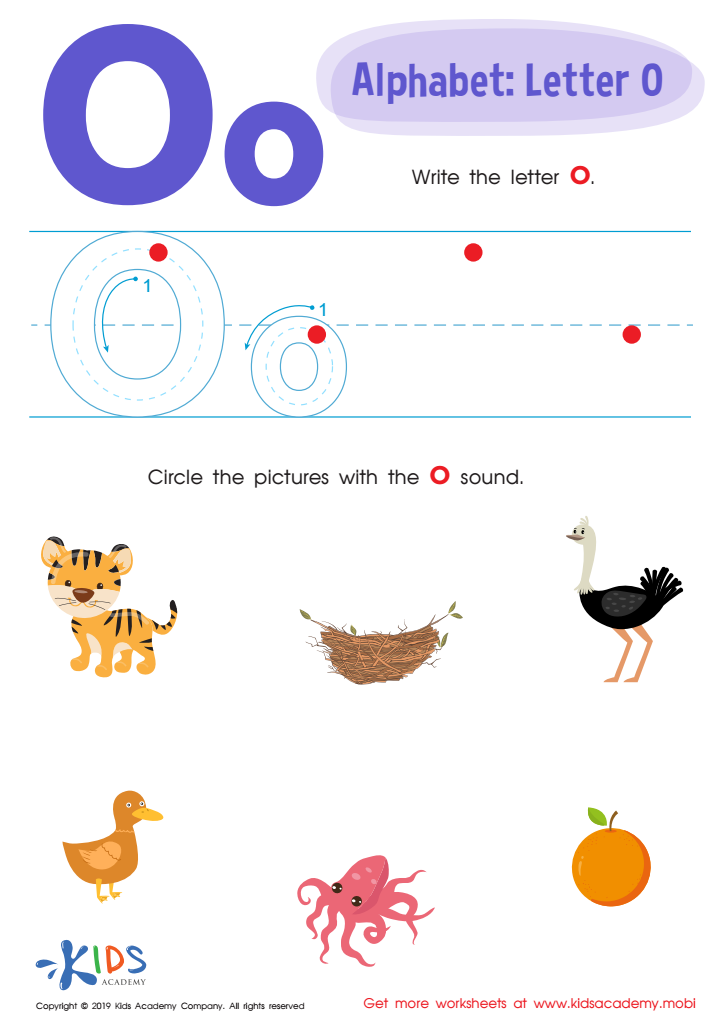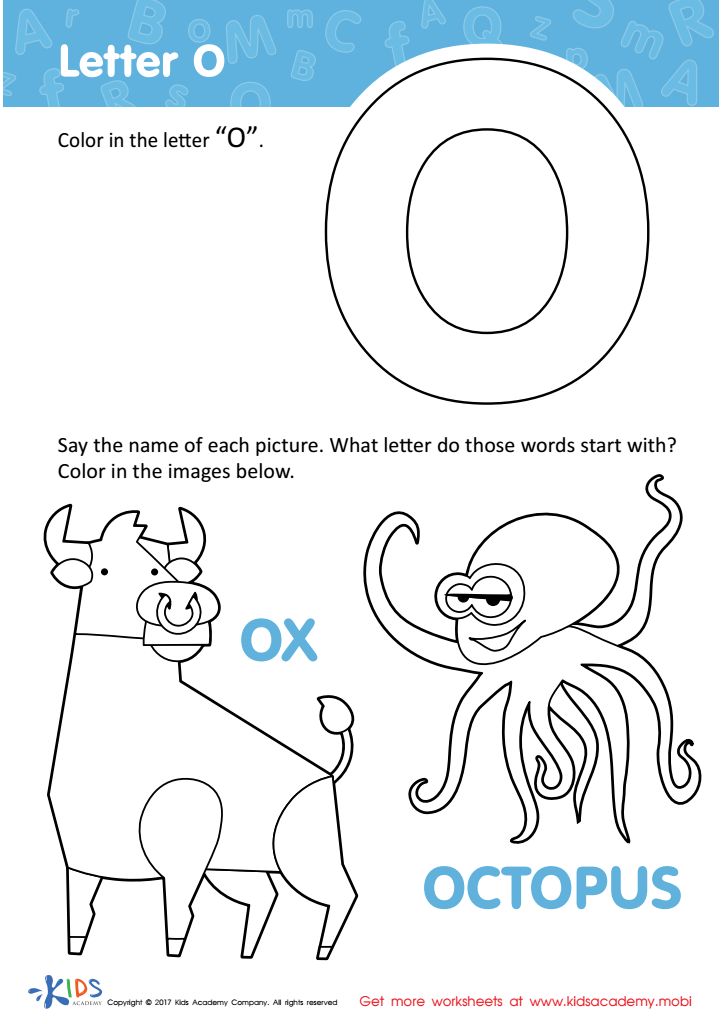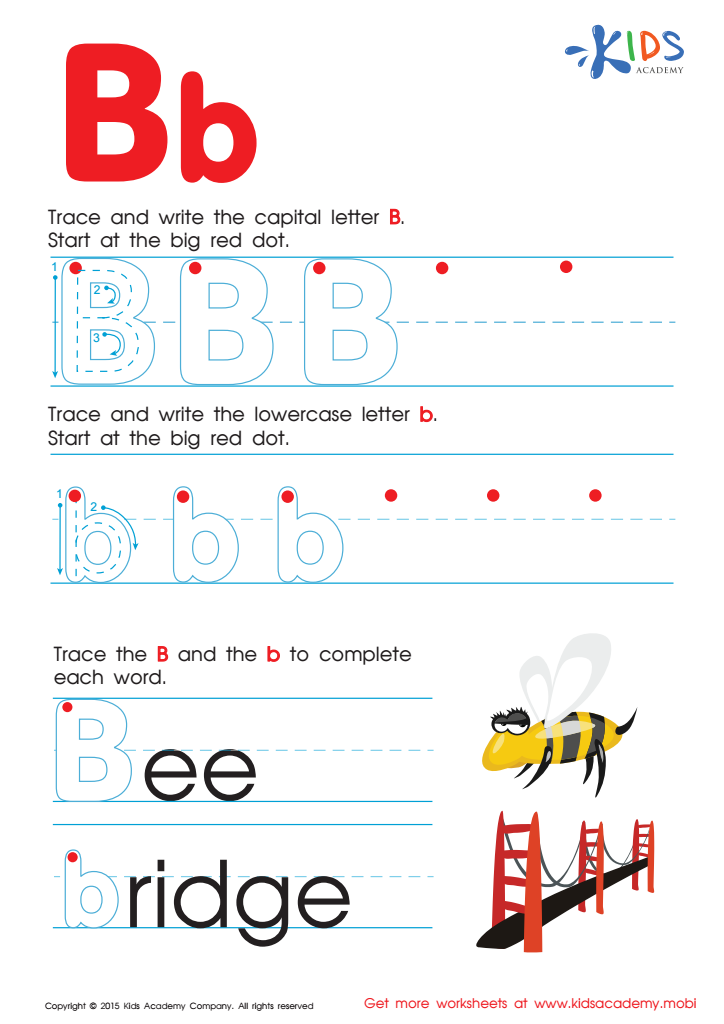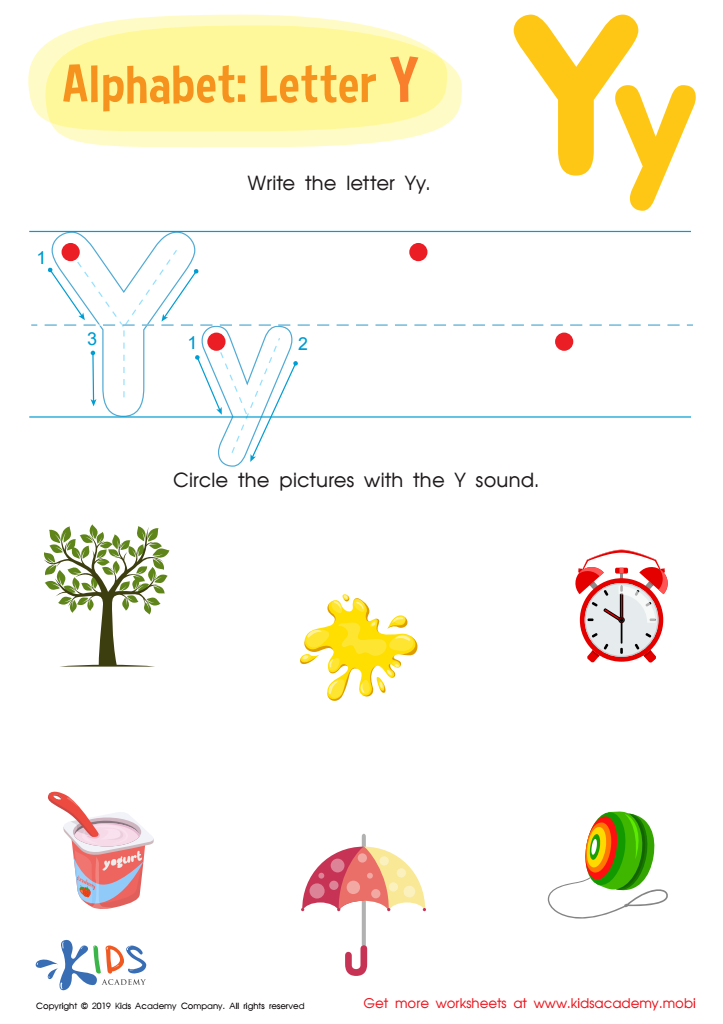Motor skills development Letter Recognition Worksheets for 8-Year-Olds
5 filtered results
-
From - To
Enhance your child's literacy with our Motor Skills Development Letter Recognition Worksheets designed for 8-year-olds. These interactive worksheets from Kids Academy blend fun activities with crucial motor skills exercises and letter recognition tasks, making learning an enjoyable adventure. Each worksheet incorporates tracing, matching, and interactive puzzles that foster fine motor development while strengthening letter identification and early reading skills. Perfect for both classroom and at-home use, this resource supports your child’s handwriting, cognitive growth, and language development, setting a strong foundation for future academic success. Download today and watch your child’s skills flourish!


Letter H Tracing Page


Letter O Tracing Worksheet


Letter O Coloring Sheet


Letter B Tracing Page


Letter Y Tracing Worksheet
Parents and teachers should prioritize motor skills development and letter recognition for 8-year-olds as it lays a critical foundation for their future academic and daily life success. Motor skills, both fine and gross, are essential for tasks such as writing, cutting with scissors, and participating in physical activities, which directly impact a child’s ability to perform in school and interact with their environment. Fine motor skills, in particular, are crucial for writing legibly and efficiently, impacting tasks such as note-taking, completing assignments, and eventually, computer use.
Letter recognition is equally vital as it is a key component of literacy. At age 8, children transition from learning to read to reading to learn; they encounter more complex texts and are expected to comprehend and analyze information. Quickly and accurately recognizing letters and words facilitates smoother reading and writing processes, reducing cognitive load and allowing children to focus on higher-level comprehension and expression skills.
By investing attention in developing these skills, parents and teachers set children up for higher confidence in their abilities, greater academic achievement, and improved self-regulation and problem-solving skills. Integrating playful, engaging activities to enhance motor and letter recognition skills can lead to a lifelong love of learning and ease in responding to future educational challenges.
 Assign to My Students
Assign to My Students





















